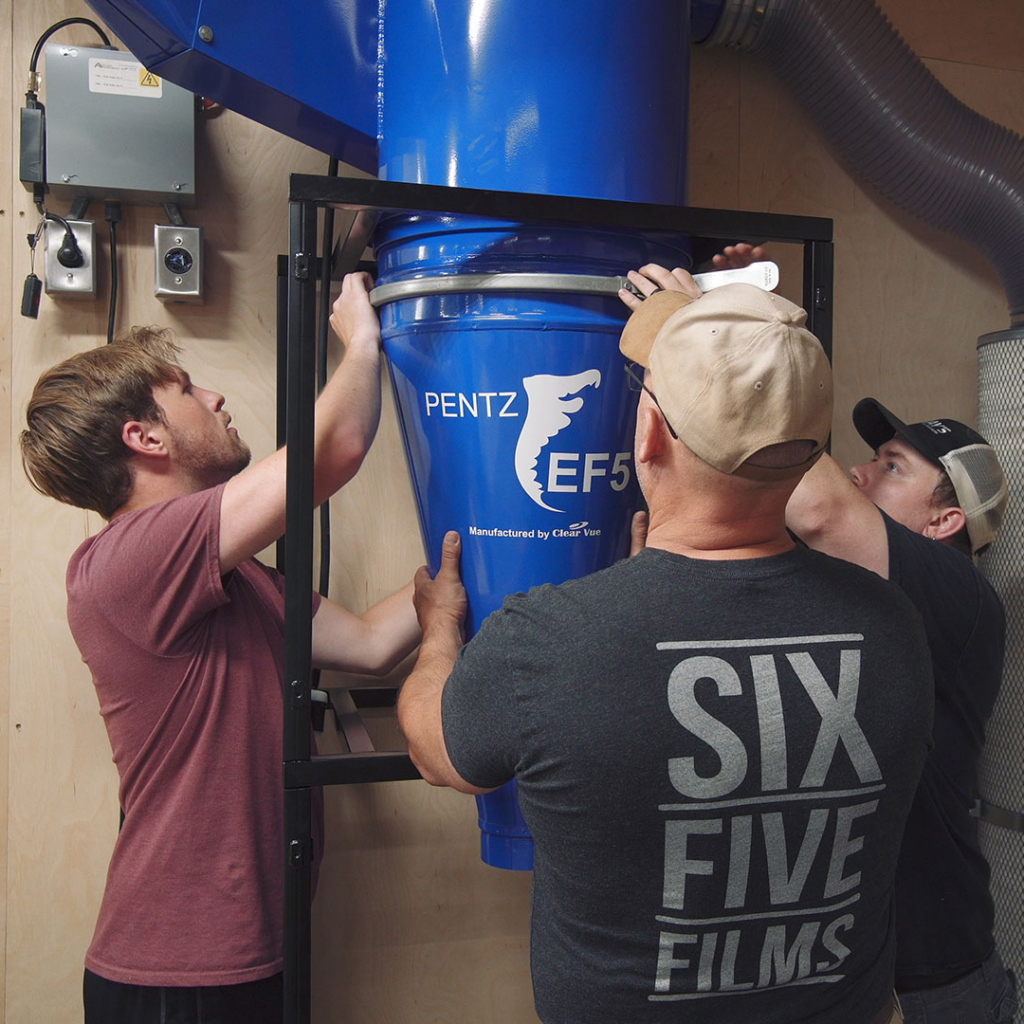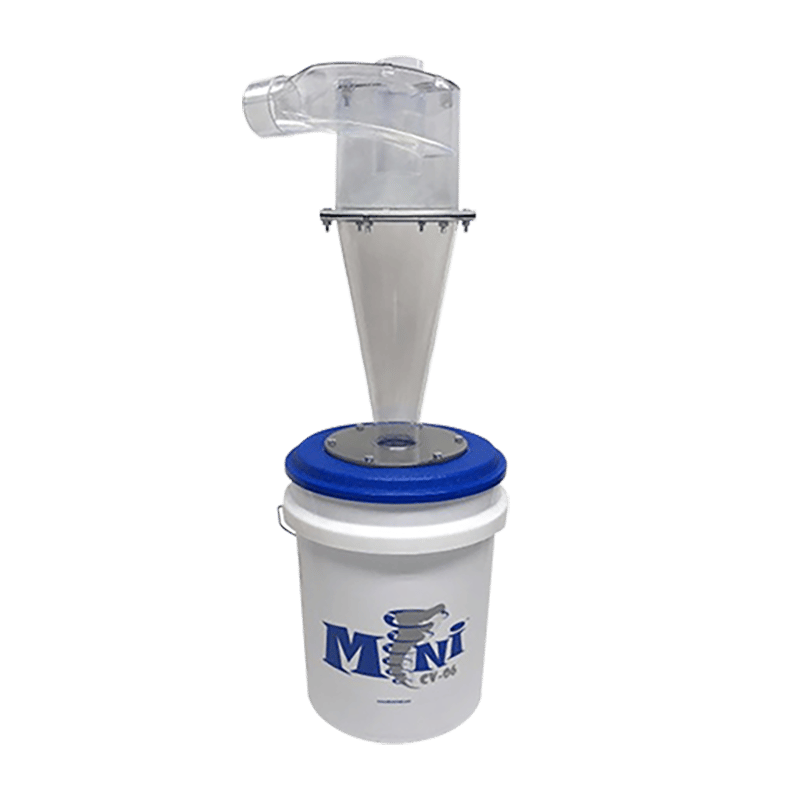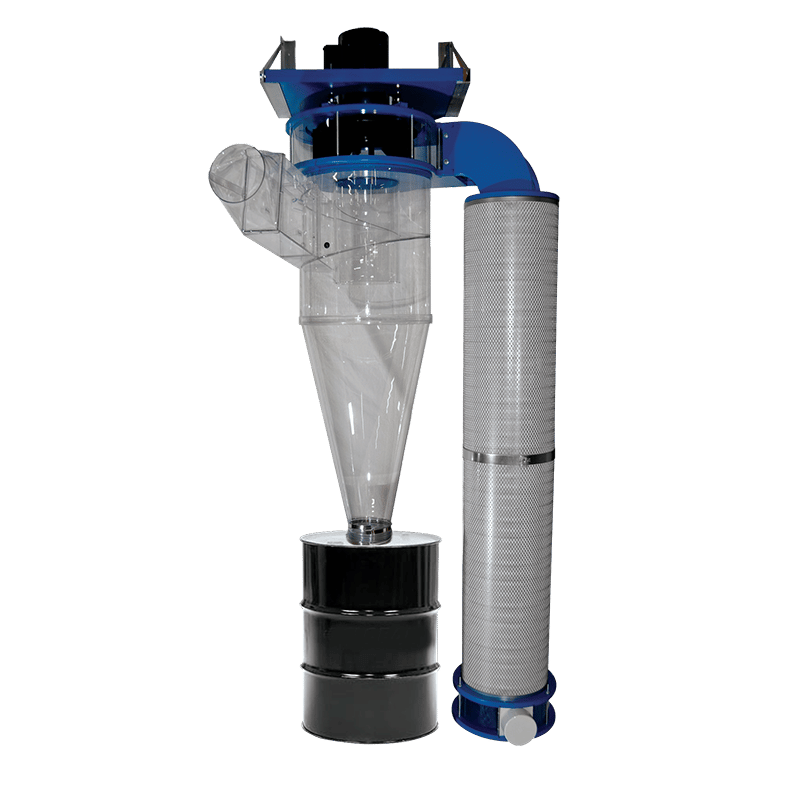A Guide to Our Dust Collection Systems
Whether building a new shop, expanding a current shop, or upgrading a dust collection system, it is important to ensure the right dust separator is in the plan.
In this guide, we will explore our line of cyclone dust separators. If you have any questions or need help designing your ductwork, feel free to contact us.
Do I need a dust separator?
Most commercial and industrial workspaces that produce dust are required to have dust collection or extraction systems to comply with industry, state, or local regulations.
Oftentimes, such systems are designed to remove large particles, not fine particulates that are proven to diminish air quality and cause breathing issues or loss of respiratory capacity.
Cyclone dust separators incorporate the removal of fine dust particles that many dust collectors and extractors fail to filter.
While dust separators are most commonly used for woodworking, our dust collectors have been utilized for fine particle separation with materials such as ash, metal shavings, concrete and plastic production and other substances. Fine dust remains airborne longer and has a greater combustion risk with certain types of fine dust.
Adding a dust separator collection system provides an additional defense to individuals, employees, and families against the health risks of fine dust particles.

What Size Dust Separator Do I Need?
There are several factors that determine the size and layout of your dust separation/collection system.
How many tools are you planning to connect to your dust collection & separation system? Do they produce a significant amount of fine dust particles – like a CNC machine or wide belt sander? Will you be running them all at once, or individually?
Tool Requirements
Most tool manufacturers provide information regarding CFM (amount of airflow) needed for dust collectors. This information along with the location of the tool will affect the size of Dust Separator needed.
A larger shop footprint allows proper spacing between tools and longer runs of ductwork. This may mean a larger dust collection system or multiple systems at different points in the shop. Low ceilings (under 96”) require a system design with height considerations.
Will the current operational arrangement meet the growth demands of the shop? This includes the layout, addition of new tools and overall space considerations. Planning for future growth will benefit the long term cost investment and reduce future rework.
Requirements for dust collection and particle separation can vary by industry and municipality. Check with your local authorities for regulations and guidance.
Do you have access to 3-phase electric service, or do you only have single-phase in your workspace?
Commercial Sizing and Budget
Commercial dust collection systems have a higher price entry point. Industrial facilities and large woodworking shops receive six-figure quotes for industrial dust collection systems, while our EF5 cyclone systems provide the same performance at a fraction of the cost.
Explore Small Tool Dust Separator
For the hobbyist woodworker with a small tools or the requirement of a mobile dust collection system, it is hard to beat the efficiency and convenience of our CV06 Mini System.
Our mini cyclone dust separator requires lower air volume than our larger systems, so it can work with smaller dust collection systems – even shop vacuums. This small but mighty system packs a punch – separation of airborne dust is 6 times better than competitive models, removing 99.9% of large dust particles (5 microns) and extending the life of the small dust collection system’s filter.

Explore Clear Dust Separators
Garages, small shops or Larger wood shops benefit from adding a cyclone dust separator in order to eliminate the need for an overhead air filtration system, dramatically minimizing the debris flowing into the filters and improving air quality in your shop.
- For single operators or small shops, you will find the CV1700 cyclone dust separator a perfect solution.
- Shops that run tools like a planer, drum sander, or CNC machine will appreciate the additional airflow offered by the CV1950.
For the necessity and convenience of running multiple tools at once, work with our team to design an efficient dust collection system that works within your budget and needs.

Explore Metal Dust Separator
The Pentz EF5 cyclone is the only all-metal cyclone dust collection system on the market designed and authorized by Bill Pentz. Beneficial for large shops and commercial environments, especially those that work with abrasive materials. Ideal for shops running up to two tools simultaneously.
For the necessity and convenience of running multiple tools at once, work with our team to design an efficient dust collection system that works within your budget and needs.


